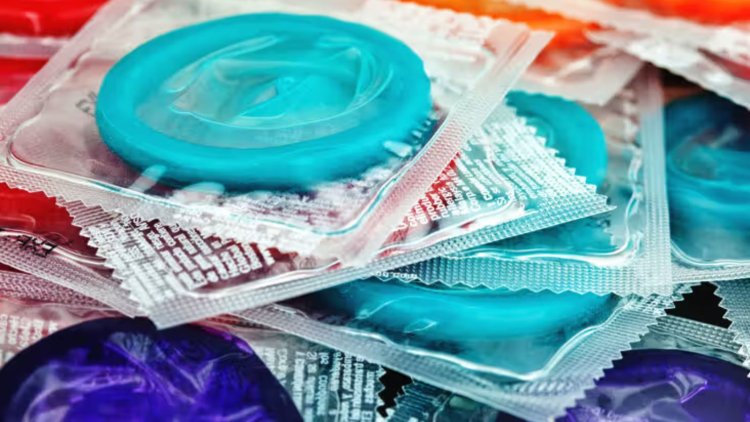Why Kenya Is Staring At Another Condom Shortage
Shrinking donor funding has been attributed to the looming shortage, amidst the rise in the cost of the commodity sold under private and multinational companies.

Kenyans fond of practising safe sex will have to dig into their pockets as the country is staring at another shortage of free condoms.
A report by the Nation revealed that shrinking donor funding has been attributed to the looming shortage, amidst the rise in the cost of the commodity sold under private and multinational companies.
National Syndemic Diseases Control Council (NSDCC) chief executive officer, Dr Ruth Laibon, spoke on Tuesday, August 29 at a press conference in Mombasa ahead of the Maisha Conference to review progress made in HIV/AIDS responses.
She expressed that a solution to the shortage would be found in due course, though she assured that condoms were still sold in plenty within retail stores and chemists across the country.

A couple cuddling in bed. /FILE
“There are enough condoms in the country. Probably the challenge is the reduction in the free-to-use condoms,” she revealed.
“Now the reduction of free condoms has mostly been affected by the reduction of external resources that were there before at the early days of the epidemic that used to provide additional resources to what the government puts on the table to buy condoms.”
She assured Kenyans that the government is working to address the challenge, revealing that there were solutions being considered including bringing some of the condom manufacturers in the country so that they can have a satellite programme of a manufacturing plant in Kenya to make condoms that can be cheaper and available.
“A condom is an effective tool that must be used alongside other tools. The condom was the earliest method that was ever discovered, even in the HIV response it has saved so many lives.
"Even when there were no drugs, condoms were available,” she added, asserting that it was the government's role to make the free condoms available.
Prof Ruth Nduati, an epidemiologist and paediatrician affirmed that condoms are a barrier method to contracting the HIV virus.
“Condom is a gadget for the male body. We have female condoms which are also now on the market but it's more expensive and less easy to use. But we have come a long way.
"It is a time to celebrate. But it’s a time not to sit comfortably. We have to be careful and on guard, as HIV/Aids continues to be a threat even amidst the success we have had,” she cautioned.
In May, the AIDS Healthcare Foundation (AHF) called on the Kenyan government to address the nation’s condom shortage, warning that Kenya risks fighting the preventable spread of HIV and other STIs, along with unplanned pregnancies, particularly among young people and vulnerable populations.
On its website, AHF indicates that Kenyans need at least 400 million condoms annually, yet the government is only set to distribute 150 million.
For many years, Kenyans have been accessing male condoms in public places, including sanitation facilities, hospitals and condom dispensers to curb sexually transmitted infections including HIV/Aids, syphilis and gonorrhoea as well as unwanted pregnancies.
On Wednesday, January 4, Health Cabinet Secretary (CS) Susan Nakhumicha Wafula denied reports of Kenya witnessing a condom shortage, stating at the time that Kenya had an inventory consisting of 38 million condoms stocked throughout the nation.
“We have sufficient quantities. We have a challenge with how these condoms get to mwananchi because of the process.
"A health facility has to request condoms by consolidating their orders to the county. We then get one order from the county and send it to KEMSA,” she explained.


 admin
admin 




